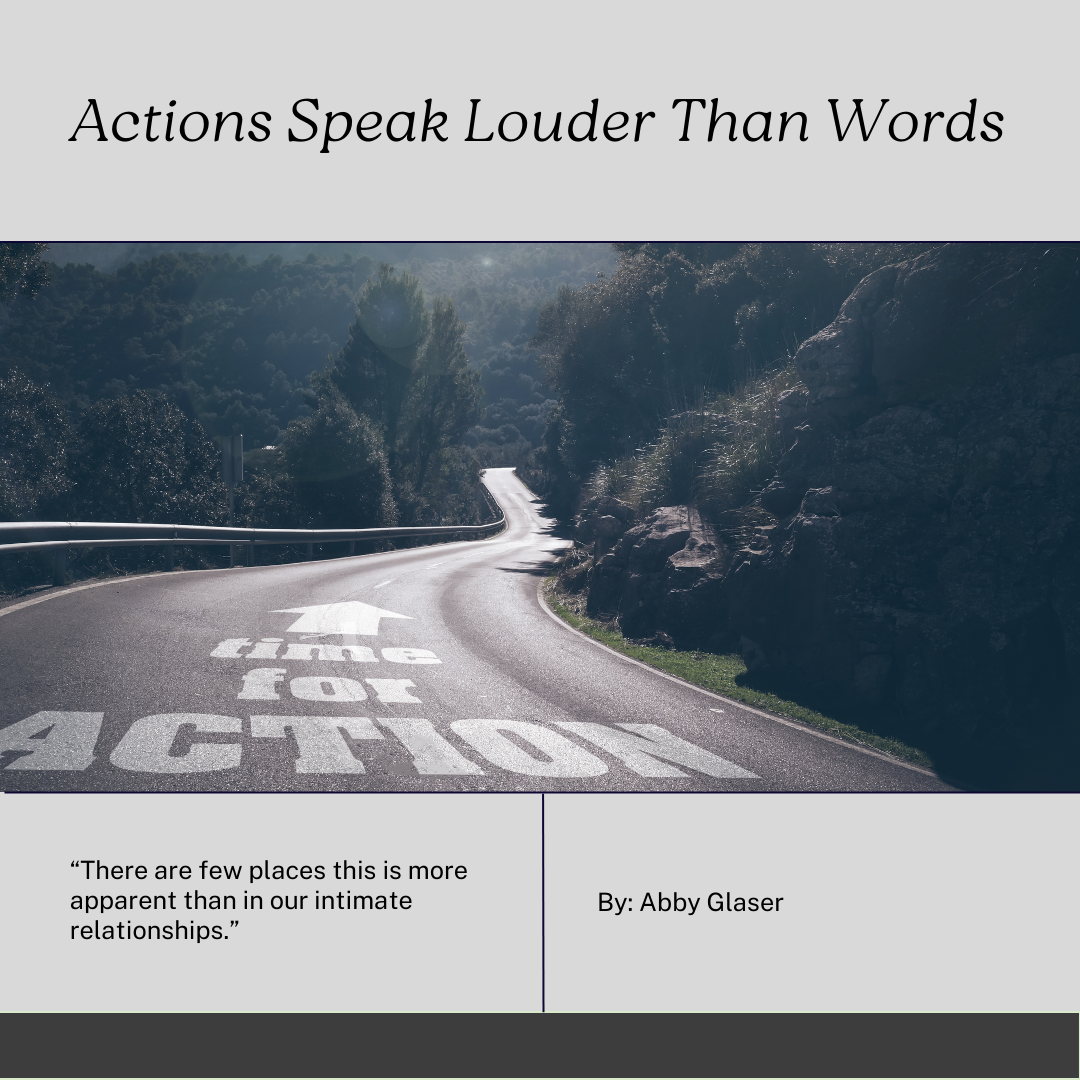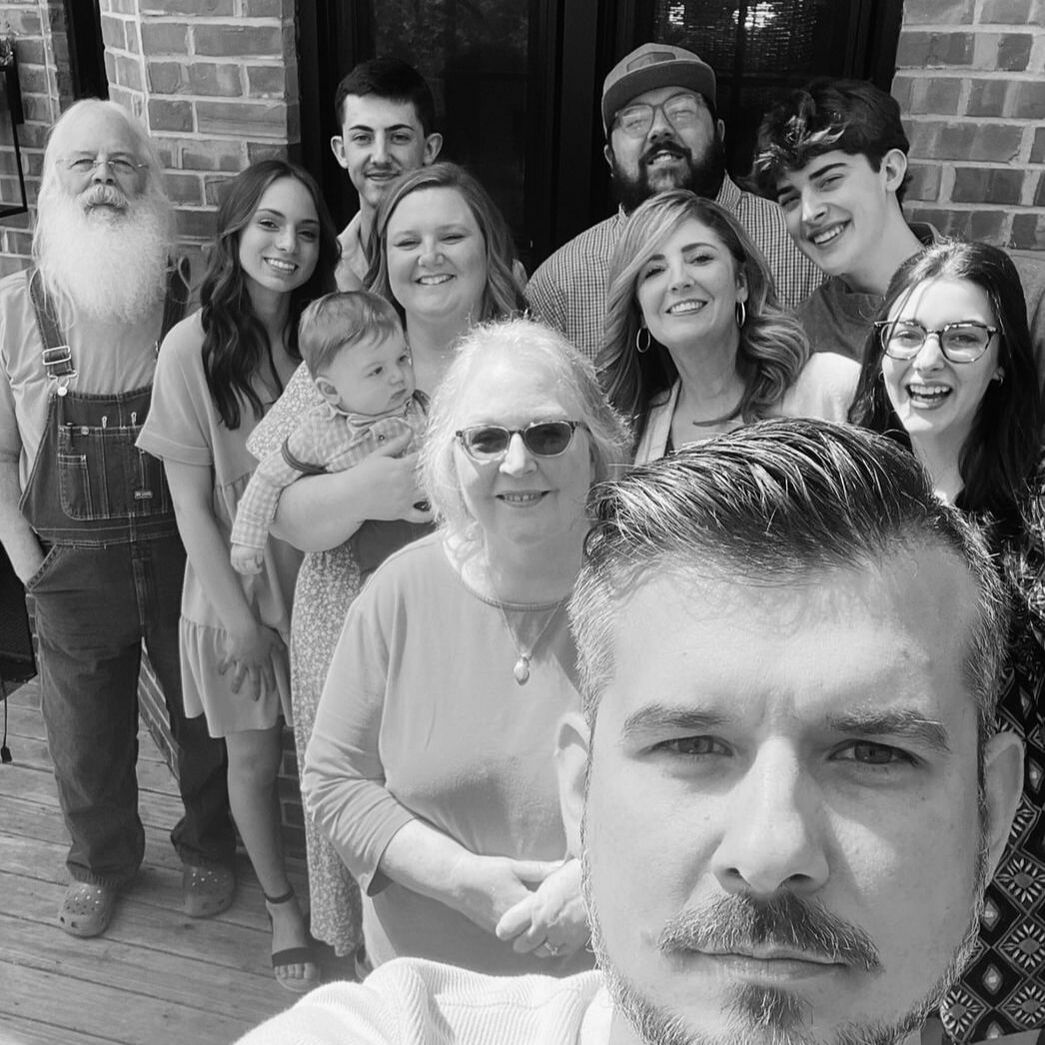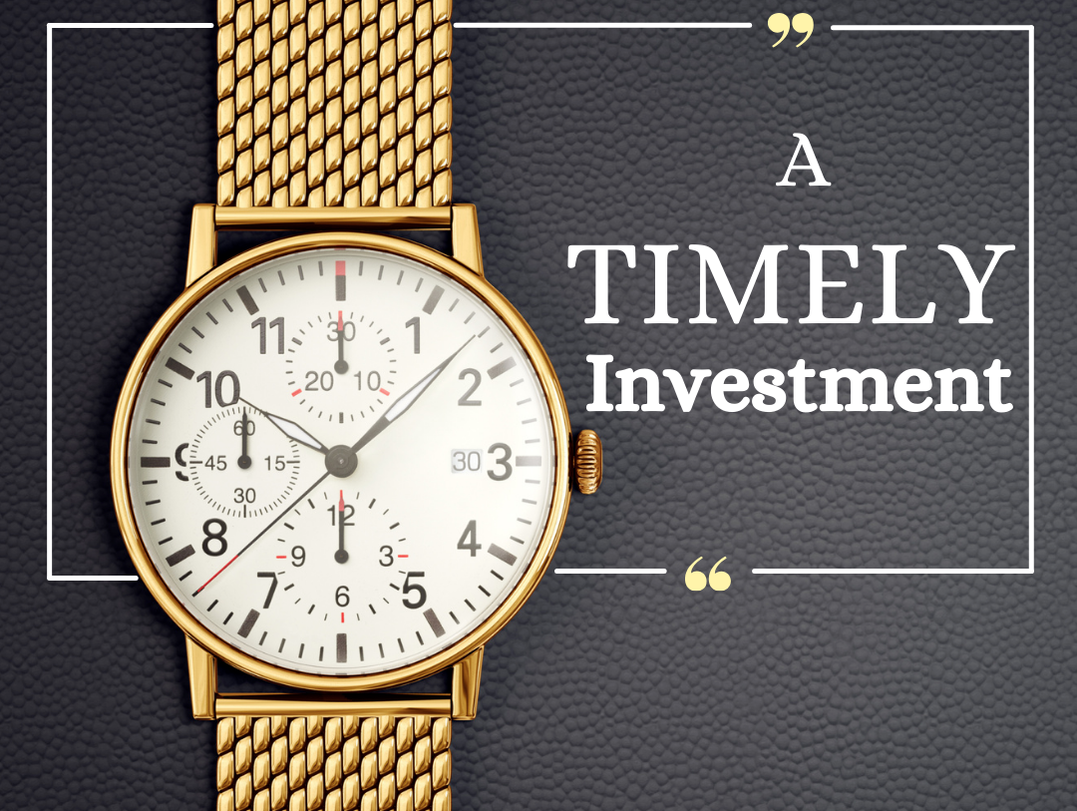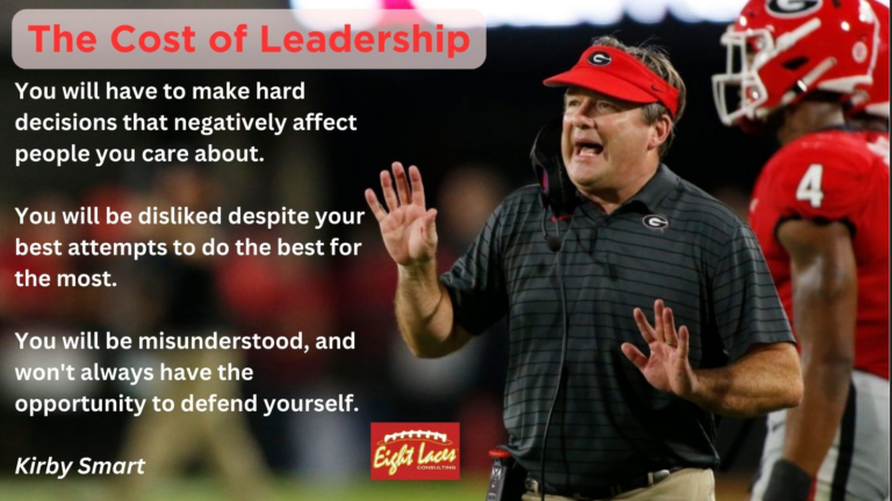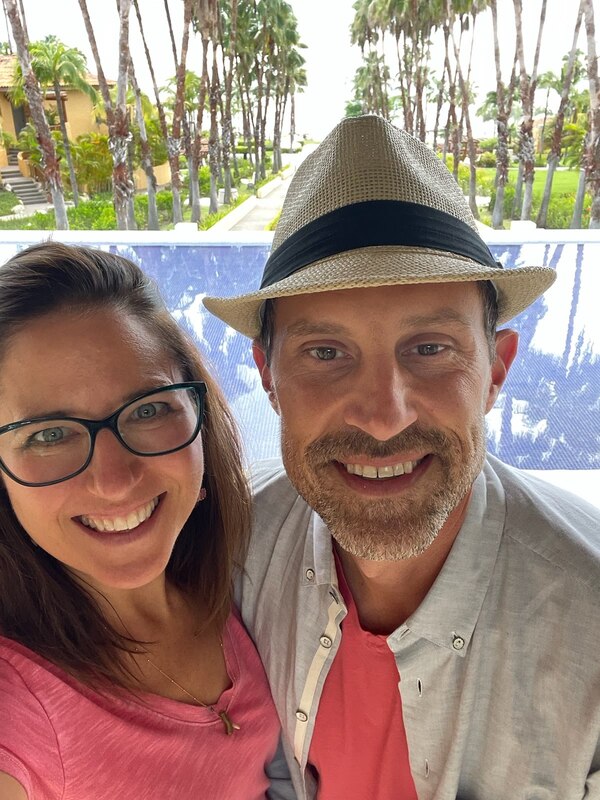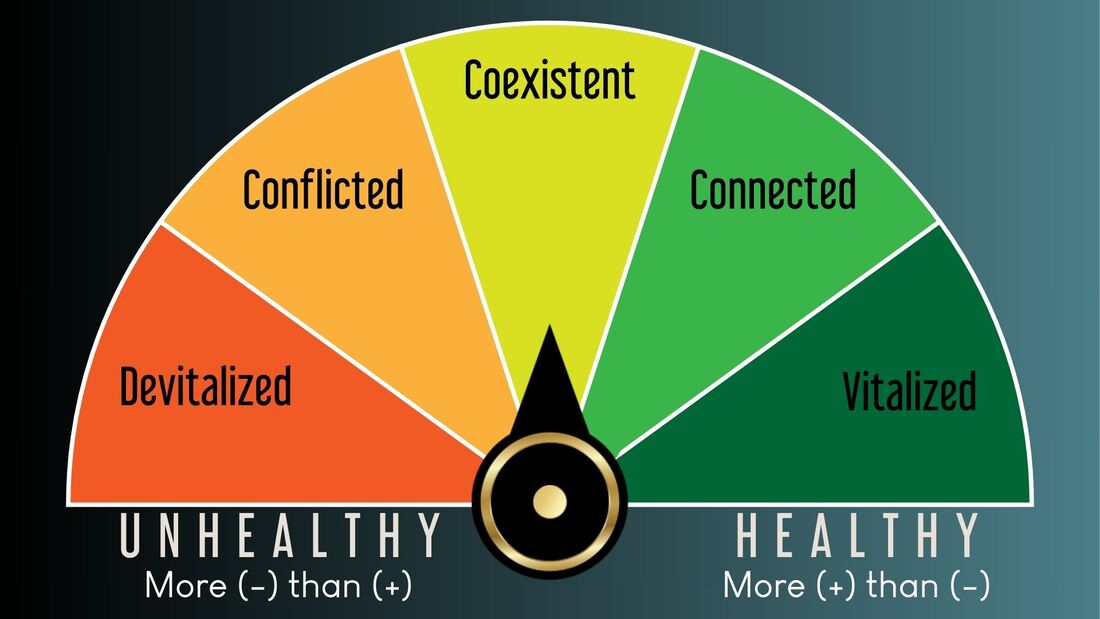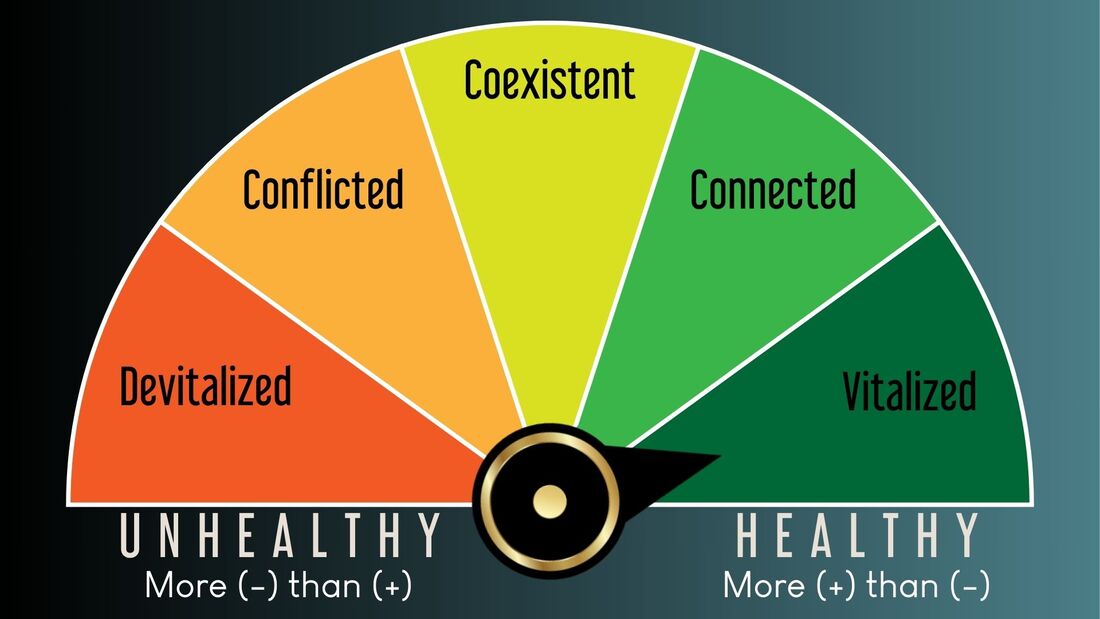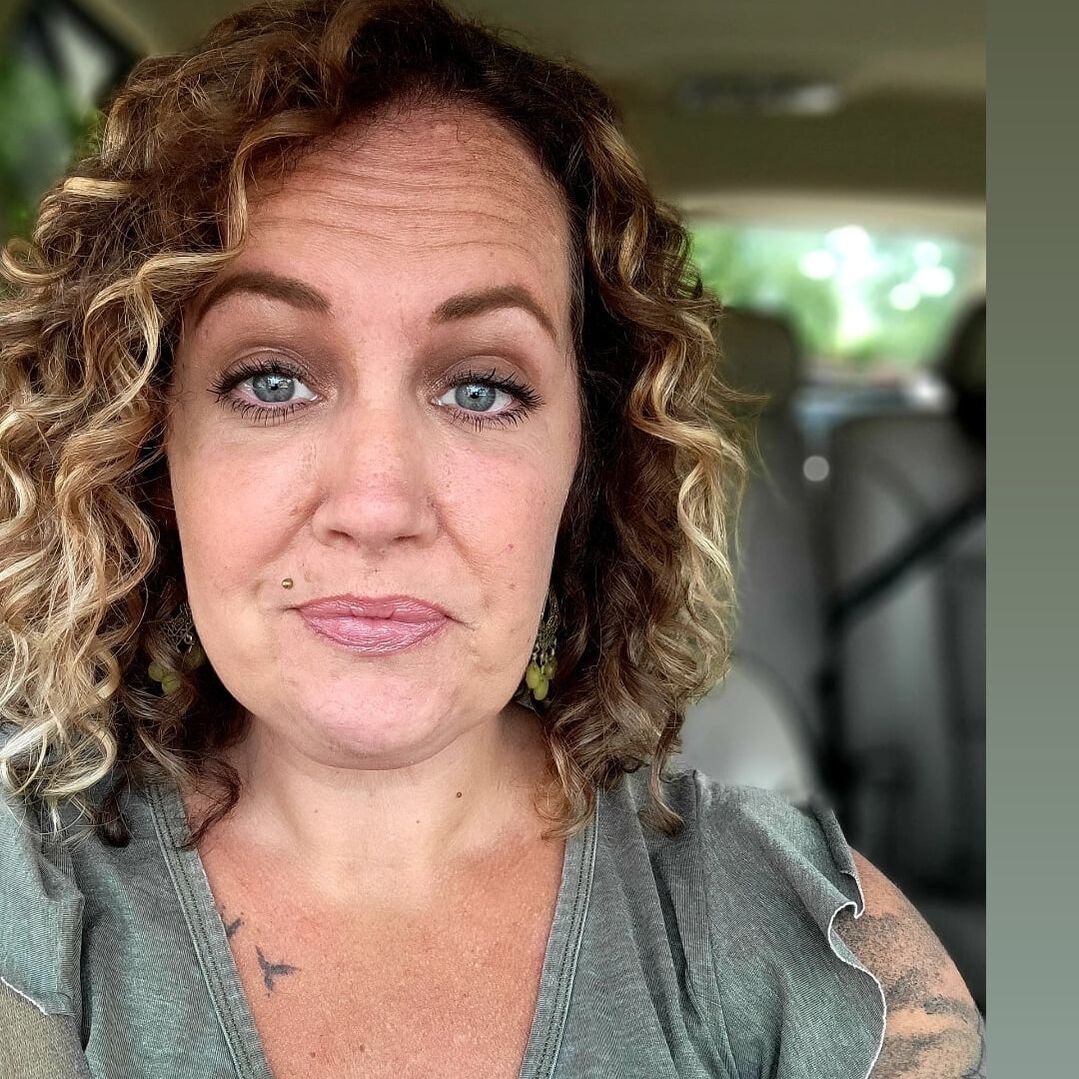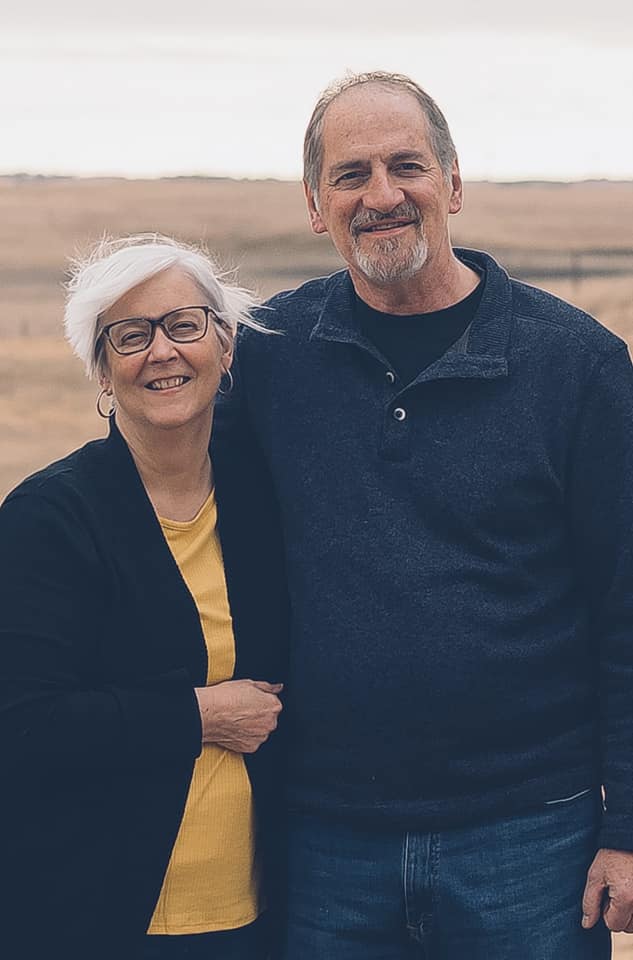|
By Kermit Rowe
Encompass Relationship Facilitator This month’s blog theme is “more than words.” So let’s take those three words and put them at the end of the following sentence to “explore the more” of a time-tested relational truth: Communication is more than words. How do we communicate besides talking? Well, we should know because we certainly do it a lot. A Psychology Today article famously reported that only seven percent of our communication happens through words. That means 93 percent of your intended message is left up to tone and non-verbal cues. Other estimated percentages may vary a bit, but one thing is clear: When it comes to communicating in relationships, it’s more than words can say.
0 Comments
We’ve all heard the saying “actions speak louder than words.”. There are few places that is more apparent than in our intimate relationships. We may be able to talk a good game to acquaintances or on social media, but our closest loved ones are the ones who know whether we live those words out! This is why it’s so important in romantic relationships to not only be saying loving words to our partner but for our actions to back it up. Let’s look at a few practical ways this can happen!
Our theme for blog posts this month is "more than words." That may sound a bit vague or even ominous, but our writers have been given freedom to develop their relationship reflections that somehow relate any communication beyond words.
By Lavern Nissley Encompass Executive Director I opened our garage door from the inside as Ronda returned from grocery shopping. I was planning to help her unload. A tinge of concern hit me as I noticed her struggling to back into the garage in a straight line. Then her passenger side mirror lightly touched the mirror of our other vehicle parked in the driveway. She stopped, got out, and joked about the awkward position she was leaving the vehicle in. After putting the groceries away together, I thought I'd bring up her backing challenges as this wasn't the first time I had seen her struggling. So, here are the words that came out of my mouth. (You'll need to click the button below to see what they were!) By: Joe Kowalski
Encompass Champion Like many of you I have a few choice verses and even books of the Bible I gravitate towards. The first book of the Bible I can remember reading was James, New testament, not very long and very practical for new a believer. There are several verses that even non-Christians would likely be familiar with even if they couldn’t cite them: John 3:16 (for God so loved the world…), Genesis 1:1 (In the beginning…), and then there are the verses that are often misquoted: ‘God helps those who help themselves’ most often attributed to Ephesians 2: 4-5, and ‘Money is the root of all evil’ pulled from 1 Timothy 6:10. And then there are those verses that we just can’t seem to get away from….in a good way. They pop up in sermons, in small group, and seem to apply to so many situations we are going through in life. By: Cindee Johnson Encompass Relationship Coach Some years ago a wristwatch that gives the time in 42 cities around the world sold at auction. This 1939 timepiece garnered more than 6.6 million Swiss francs. That was 4 million US dollars. Can you imagine spending 4 million dollars on a watch? How about 4 thousand? Four hundred? Okay…$40?!? A Timex that costs a relatively few bucks is probably going to keep time nearly as well as that 1939 model, though maybe not in 42 cities around the world. So, why would someone spend that kind of cash on a wristwatch? Obviously, it’s not about keeping time. It’s about investment. A timely investment. Our promotions coordinator, Hollie Kowalski, selected a scriptural encouragement from 2 Timothy 1:7 as our blog theme for April. "For the Spirit God gave us does not make us timid, but gives us power, love and self-discipline." By Ronda Nissley
Encompass Co-Director Recently a friend shared with me the Three Costs of Leadership by Kirby Smart, Georgia Bulldogs.
Our promotions coordinator, Hollie Kowalski, selected a scriptural encouragement from 2 Timothy 1:7 as our blog theme for April. "For the Spirit God gave us does not make us timid, but gives us power, love and self-discipline."
By Lavern Nissley Encompass Executive Director This is not a Bible study, but the central premise comes from scripture. And it can have a positive effect upon our relationships. There are hundreds of things in the world that are just plain scary and intimidating - that is, making us feel timid and tentative. Another word that comes to mind is "reactive", pretty much controlled by circumstances around us. This is so different from that which is characterized by power, love and self-discipline. It will become even more obvious when you see 2 circles, one of my favorite concepts from Stephen Covey's bestseller, The 7 Habits of Highly Effective People. Our blog post theme for March is "Growth Areas." So, our blog post authors will be challenging us toward growth in personal awareness for the sake of strengthening relationships.
By Lavern Nissley Encompass Executive Director Thursday evenings, 7-8 pm, were times I looked forward to for about 2 1/2 months. Why? It wasn't for recreation, spending time with family, or a favorite TV show. It was to spend quality time with Ryan and Julie Preas, a couple who signed up for our RINGS Experience education and coaching. Even though Ryan and Julie weren't where they wanted to be in their 22-year marriage, they had a lot of the intangibles down like mutual respect, seeking peace, and growing together. But they didn't want to stay where they were. What a joy it was to watch them moving their health needle into more and more positives! By: Kermit Rowe
Encompass Relationship Facilitator For better or worse, till death do us part, our family remains our family. We can ignore them, refuse to have a personal relationship with them, but we can’t ignore the blood connection to them given to us by God through our birth. If God is the God He claims to be – the holy, perfect one with no beginning or end, who has no evil or error in Him – then it follows that He makes no mistakes. And it follows that the family He placed us in is the family we are meant to be a part of. In His perfect, infinite wisdom. To question our family origin is therefore questioning Him. He could have sent us into any family, in any hometown, in any native country, at any point in history. But He chose to send us into the life and family we currently occupy. By: Abby Glaser
Encompass Community Advocate As a relationship educator, one of my favorite things is personality types and tests! I think they are a fun way to understand ourselves better and understand how we function in relation to others. Because I use such tests in my classes I’ve spent a lot of time studying and understanding them. This has led me to have a pretty good understanding of my own strength and growth areas. This has come up for me recently in a relationship where I’m starting to realize one of my strengths, loyalty, has become a growth area. Let me explain! |
HostsLavern & Ronda Nissley are co-directors of Encompass. Married since 1978, both enjoy coffee, riding their tandem bicycle and working together to build strong relationships. TOPICS
All
Archives
May 2024
|
FIND IT QUICKLY |
STAY CONNECTEDOFFICE HOURSMON 9a-2p
TUE 9a-2p WED 9a-2p THU 9a-2p Other hours by appointment VISIT US616 N. Limestone St. | Springfield, OH
|
Funding is provided by Clark County Job and Family Services, The Turner Foundation, Springfield Foundation, Buckeye Health, private donations and fees.
Program content is the sole responsibility of Encompass Connection Center and does not necessarily represent the views of the funders.
Encompass Connection Center services are provided to all eligible persons on a non-discriminatory basis. Encompass Connection Center complies with all applicable laws and regulations concerning discrimination does not discriminate on the basis of the potential participant's race, gender, gender orientation, age, disability or religion.
Registered 501(c)(3). EIN: 37-1485217
Program content is the sole responsibility of Encompass Connection Center and does not necessarily represent the views of the funders.
Encompass Connection Center services are provided to all eligible persons on a non-discriminatory basis. Encompass Connection Center complies with all applicable laws and regulations concerning discrimination does not discriminate on the basis of the potential participant's race, gender, gender orientation, age, disability or religion.
Registered 501(c)(3). EIN: 37-1485217


